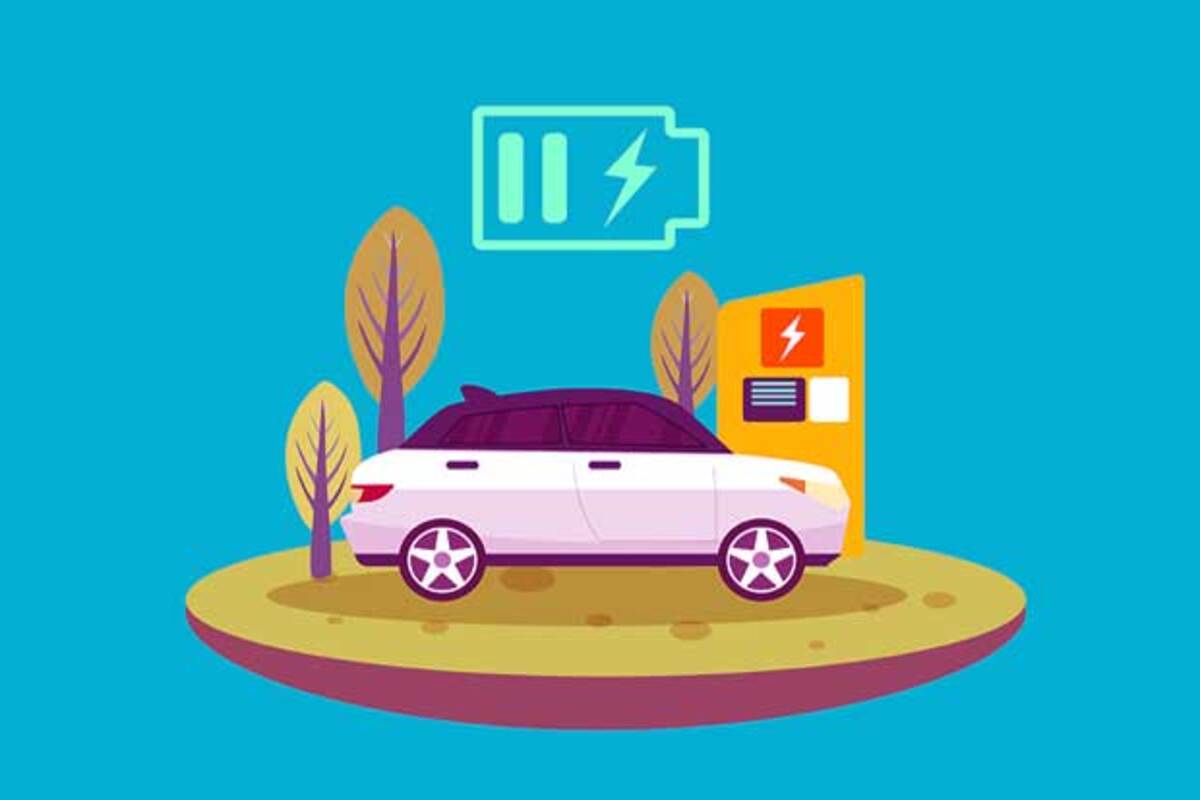Trade Shift
Nepal's trade dynamics have experienced a notable shift in recent months, reflecting broader economic and geopolitical trends in the region.
According to Federation of Automobile Dealers Associations (FADA), the sale of retail electric vehicles saw a sharp three-fold jump in 2021-22 (April-March).

File Photo
While transport is a fundamental requirement of a modern life, increase in fuel prices including petrol and diesel are burning a hole in consumer’s pockets. This has paved the way for electric vehicles for its long term benefits.
Though there has been a rise in number of cases where electric vehicles caught fire including Tata Nexon car which recently hit the headlines, still a large chunk of people are shifting themselves to electric vehicles keeping in view its benefits.
Even the Bureau of Indian Standards (BIS) has now issued new performance standards for lithium-ion batteries to safeguard the consumers amid the rising EV fire episodes in the country.
Advertisement
Union minister Nitin Gadkari also warned EV manufacturers earlier this year after numerous fire incidents. He said that if any company is found negligent in their processes, “a heavy penalty will be imposed and a recall of all defective vehicles will also be ordered”.
According to Federation of Automobile Dealers Associations (FADA), the sale of retail electric vehicles saw a sharp three-fold jump in 2021-22 (April-March).
The data shows in 2021-22, 4.29 lakh electric vehicles were sold, compared to only 1.34 lakh last year and 1.68 lakh in 2019-20.
Besides, a concerted push by the central government and expanding footprint of the charging infrastructure has led to the growth in EV sales during the year.
Here are some of the benefits of owning Electric cars:-
Low Maintenance Cost – Since EVs don’t have as many moving parts as an internal combustion vehicle, the servicing requirements for electric vehicles are lesser than the petrol or diesel vehicles.
Lower running costs- Since EVs use electricity to charge their batteries instead of using fossil fuels like petrol or diesel, these are more efficient.
Also using renewable energy sources not just makes EVs more eco-friendly, if charging is done with the help of renewable energy sources installed at home, such as solar panels, it could further reduce costs.
Zero Tailpipe Emission – The usage of EVs help reduce carbon footprint because there will be zero tailpipe emissions. One could reduce the environmental impact of charging vehicles further by choosing renewable energy options for home electricity.
Tax and financial benefits – The registration fees and road tax on purchasing electric vehicles are lesser than petrol or diesel vehicles.
No noise pollution – Electric vehicles don’t have gears and are very convenient to drive and with no complicated controls, just accelerate, brake, and steer, it’s easy to drive. Electric vehicles are also quiet, so they reduce noise pollution that traditional vehicles contribute to.
Convenience of charging at home – With EVs at home, one does not have to spend hours at fuel station during peak hours. Instead of standing in long queues, one could easily take the help of fast chargers or even battery swapping services.
Industry Experts Say:-
According to Mr. Nemin Vora, Chief Executive Officer, Odysse Electric Vehicles, “Indian market has shown keen interest in EVs and accepted the automotive paradigm shift. Electric Vehicles are not only Eco-friendly thus reducing air as well as noise pollution but also help in saving on automotive costs. The cost of running is as low as 15 paise/ km for an Electric 2W vs. Rs. 2.5 / km in Petrol 2W.”
Amitabh Shivpuri , Director, EV Cosmos on his part has said, “In the eyes of automakers, EV batteries are the next gold rush. The car business will evolve faster in the next five to ten years than it has in the previous 50 years. Electric car batteries are a tried-and-true technology that will last for many years.”
Aravind Sanka, Co-Founder, Rapido said, “India has witnessed one of its biggest revolutions with the introduction of EVs and its growing infrastructure. We are aiming to electrify a quarter of our two-wheeler fleet in the next three years, while expanding our overall fleet to cover more metros, tier-I, II & III cities. We are doing this by partnering with TVS Motor Company, to help strengthen our EV (electric vehicle) segment.”
Recommendations on Battery Safety:-
The National Highways for Electric Vehicles (NHEV) recently during a meeting organized to brainstorm issues related to battery safety came up with 12 recommendations.
Regarding regulatory aspects, foure recommendations were made. These are identification of battery failure issues, volatile thermal behavior and associated risks with an identification device to understand the root cause of failure, real-time verifiable exchange value for battery swapping, net metering of charging stations from DISCOMs, and financing (by bank and NBFCs) of only those batteries that meet government standardization.
The technical recommendations include the provision of black-box like feature to monitor the battery systems and identifying the issues that lead to battery failure, mandatory digital connectivity of the battery through e-sim or other means, monitoring the battery performance & battery recall in case of fault identification, and high accelerated lifetime testing (HALT) for critical battery performance and operating parameters
Advertisement